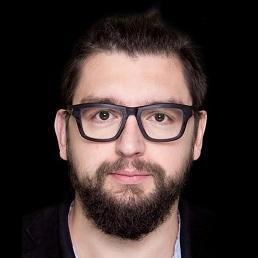Digital Europe: narratives from beyond the mainstream
Nowadays, when we think of digital technologies, we tend to forget those enthusiastic communities that flourished around computers, programming languages, and software in the 1980s and 1990s. That is especially true for Europe as the origins of the computer industry in the United States have been well-researched.
Therefore, an international consortium will carry out a 4-year research project financed by a grant from the European Cooperation in Science and Technology (COST) program. Grassroots of Digital Europe: from Historic to Contemporary Cultures of Creative Computing (GRADE) aims to build a robust and diverse network of researchers from 20 different countries, who will focus on investigating user communities centered around game writing, demoscene (an international computer art subculture focused on producing demos to show off programming, visual art, and musical skills), and other computer hobby movements.
Besides laying the groundwork for commercial successes, these vibrant communities have created important specimens of digital cultural heritage. In Poland, for example, such a community gave birth to a world-renowned video game development studio, CD Projekt. GRADE is a perfect opportunity to publicize stories and projects from outside the mainstream. Undoubtedly, it is a substantial part of the European cultural heritage.
The point is not just to better understand and archive history. Although, when it comes to interactive media running on dead-and-dying platforms, that would be an intriguing challenge in itself. The broken and forgotten development paths are also a pretext to constructively critique the modern tech industry and imagine its more inclusive and less centralized alternatives. Anyway, this encounter between the past and the future of technology is one of the issues we want to address in the newly established research center at the Institute of Humanities.

Mirosław Filiciak, Ph.D./Associate Professor
Director of the Institute of Humanities
European Cooperation in Science and Technology
European Cooperation in Science and Technology (COST) is the oldest European research program (established in 1971) that enables researchers to set up their interdisciplinary research networks in Europe and beyond. COST funds interdisciplinary research networks called COST Actions to bring together researchers, innovators, and other professionals. The teams collaborate on research topics for a period of 4 years. The funding a COST Action receives covers the expenses of networking activities rather than research and is used to organize meetings, training schools, short-term scientific missions, and other networking activities.

Mirosław Filiciak
Ph.D./Associate Professor
Is the Director of the Institute of Humanities and the Head of the Department of Cultural and Media Studies at SWPS University. He is a cultural researcher interested in the relationship between new media and cultural participation. His research interests include the Internet, computer games, transformation of television, contemporary culture, and informal distribution of information. He collaborates with numerous public cultural institutions, businesses and NGOs. He is also the co-creator of Kultura 2.0 [Culture 2.0], a project devoted to cultural transformations in the digital era as well as Medialab, the first Polish initiative combining social activism, art and technology.